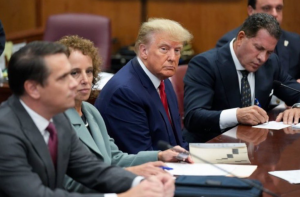Chip maker Nvidia has been told by US officials to stop exporting two of its top artificial intelligence chips to China, according to a report from Reuters. It will affect the sale of its A100 and H100 chips.
The move could potentially cripple Chinese firms’ ability to work on technology like image recognition as well as tarnish Nvidia’s reputation and ability to do business in the country. The new rule from US officials will “address the risk that the covered products may be used in, or diverted to, a ‘military end use’ or ‘military end user’ in China,” Nvidia told Reuters.
The US Department of Commerce refused to elaborate on what criteria it has laid out for the chip maker. Additionally, AMD told Reuters that it has been told to stop exporting its MI250 artificial intelligence chips to China, but the company has said it will not have an impact on its business.
The announcement is the latest escalation from the US as it cracks down on China’s technological capabilities, especially considering tensions regarding Taiwan, where most of the chips from major players in the industry are manufactured. Without the chips, Chinese companies are likely to face a harde time in carrying out cost-effective AI-powered computing tasks.
Also Read: Gaming industry to see spending slowdown amidst slowing pandemic growth
Stock value slump
After the news broke, Nvidia share fell by 6.6% after trading ended. Similarly, AMD also saw its shares fall by 3.7%. The chip making company is already facing a sales slump as consumer demand for personal computers has dropped. Nvidia has even said that it will slash the prices of some of its high-powered graphic cards but that isn’t likely to shift the needle by much.
The company had forecast $400 million in sales of the banned chips in China, which it fears will be lost if companies in the country don’t buy alternate Nvidia chipsets. Even the companies third quarter revenue forecast isn’t too optimistic, with an expected $5.9 billion expected to come. That is 17% lower than the same period last year.







